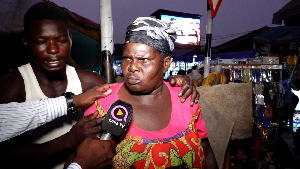The debate over whether Ghana knows exactly how much oil comes out of the Jubilee Oilfield has resurfaced, as it emerged at a forum on the Petroleum
Exploration and Production (E&P) Bill that government is yet to install its own ultrasonic flow meter on the FPSO Kwame Nkrumah.
While the E&P Bill, which gives the Petroleum Commission the right to “install facilities to monitor production” in “consultation” with the Standards Authority is yet to be passed, a source close to the Standards Authority said government is yet to provide resources for the parallel metering.
“We have presented a budget to the Ministry of Energy, through the Ministry of Trade, but they are yet to make the resources available to the authority. We are asking for equipment to do the verification and calibration of their [Tullow Oil’s] meters. And then we are also asking for parallel metering for government so that it can be a check on whatever the companies are doing,” the source said.
At a forum organised by the Africa Centre for Energy Policy (ACEP) on aspects of the E&P Bill that need fine-tuning, several participants expressed shock that the issue of metering the flow of oil is still unresolved.
“It has come as a big surprise to me that we are still going through this metering situation with our oil industry. How do we know how much oil is coming out? Is it two or three years ago that we started talking about this metering? Why are we still talking about it?” Kwame Jantuah, an industry consultant, said.
“We must be losing billions because of this metering. How much does a meter cost? We have no control over something that is so fundamental to the revenue that is coming to this country. It boggles my mind that we are not able to do simple things like this which are part of the process and procedure. You put the pipes in the ground and the oil comes out; you have to be able to monitor it to know how much oil is going out and what kind of revenue you should expect. I think it is an indictment on government; they should do something about it now because it is fundamental,” he added.
Augustine Niber, Executive Director of the Centre for Public Interest Law, said: “It is a matter of urgency that we have the parallel metering in order to know how much oil we are getting. Yes, there are other methods of knowing how much oil is being transported. But we need to cross-check.”
Section 37 of the E&P Bill, among other things, says contractors (oil companies) “shall measure and analyse the petroleum produced, transported and sold, subject to approval by the Petroleum Commission in consultation with the Standards Authority, whose Metrology Division is in charge of metering.
The section further gives the commission the right to independently install facilities to monitor production. But the E&P Bill, which is considered fundamental to the industry, is yet to be passed into law -- and civil society actors have expressed worry over the sequencing of legislation in the industry.
The E&P law, many feel, should have preceded the passing of the Petroleum Revenue Management Law and the recent approval of the Local Content Regulations.
“You see, from the onset, I said let’s pipe the oil on land because it creates a lot of employment. They said no; it is too expensive. But aren’t we trying to pipe gas on land now? Couldn’t we have done the same thing? Let’s get serious in this country, because if we don’t get serious in this country we will be taken for granted every day,” Kwame Jantuah, who is also a member of the Civil Society Platform on Oil and Gas, said.
Business News of Tuesday, 10 December 2013
Source: B&FT













